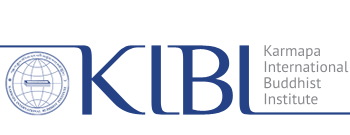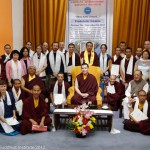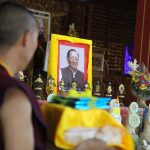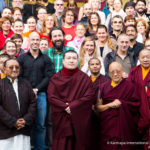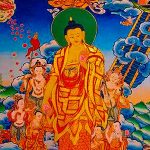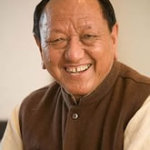What is the Pure View?
November 19, 2013

My question is about pure view and the ability to discriminate. If one practices pure view of everyone, would it inhibit our ability to judge people and matters and function in daily life?
As the Buddha is omniscient, and we are aiming to reach the same wisdom of knowing everything exactly as it is, why should be “superimpose” a pure view on something that we know to be a fact? For example, if someone has certain faults, is pure view about wiping away or ignoring these faults about the person, rather than having an accurate assessment of that person?
Answer:
In a Buddhist context, the longer we spend on the path as a practitioner, the more important it is to explore the subject of pure view.
The act of judging or the ability to judge is a delicate matter. Before we are able to judge a situation, we first need to be aware of every fact, every angle of that situation. But, again, it is a delicate matter. We are somehow never quite sure that every angle has been covered. Our instinct, and indeed our doubts, can be helpful tools to enable us to assess things.
I believe that the very act of struggling to prove a point is a type of judgement. However, when we do judge, I think it is important that the motivation is for the benefit of others, rather than proving a point for ourselves. By putting our point across, it may improve the quality and ability for all to assess a situation.
While judging through complete understanding may be considered part of the Buddhist path, the development of pure view may be considered as the path within the path.
The higher the level of purity in our view, the lower the burden of having to judge at all. When we have pure view, we are able to see the facts as they are – there is no need to judge or say something is ‘like this’ or ‘like that.’ When we have pure view, we do not need to go around struggling to prove something. It is what it is.
As long as we have pure view, there is less room for mistakes, and everything becomes clearer. Questions might arise about whether or not we all have this potential for pure view, but those with pure view understand that we all have this potential. Those with pure view have a very broad, a panoramic perspective, let’s say. Again, the need to judge, either oneself or others, is no longer present.
Now, when it comes to benefiting others, let’s say in the case of a bodhisattva, the purpose of their life is to guide and support others. To be able to do this, you first need to be a good guide yourself. Part of being a good guide is to make things clear for others, which in some ways entails an element of judgement. In the case of a bodhisattva, therefore, some judgement comes into play, even when there is pure view


